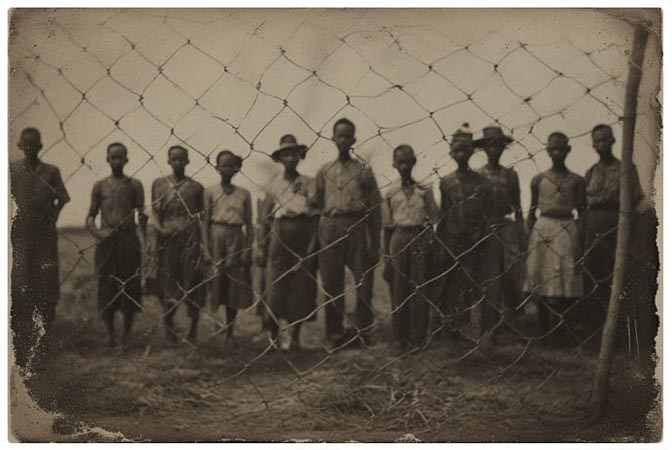Every map is a decision.
A choice of what appears — and what is erased.
This chapter traces the contours of disappearance: voices, places, and stories that have been deleted from archives, displaced from official narratives.
At its centre is not what is remembered, but what remains unseen —
what is meant to be absent, yet continues to resonate.

Amid the
endless noise of the information age,
silence persists — a topography of
suppression. These absences are not
accidental. They are politically
produced blank zones in collective
memory, shaped by the lines of power
that determine what can be said and
remembered. Forgetting here is not
failure, but strategy.
read more Between the Lines
Epistemic Gaps: A History of Disappearance
Forgetting, as Michel Foucault reminds us, is built into the architecture of power: the archive is not neutral but a system that defines the boundaries of knowledge.¹ Aby Warburg’s Mnemosyne Atlas, with its fragmented panels, exposes the instability of memory — always shifting, always threatened by disappearance.²
Yet within these cartographies of
forgetting lies resistance. Where memory
fractures, new connections and
counter-narratives emerge — the echoes
of those who refuse silence. Memory, as
Elena Esposito argues, is not an
individual act but a social struggle for
visibility and meaning.³ And erasure,
writes Achille Mbembe, is no void but a
deliberate passage into “non-being.”⁴
Footnotes:
1. Michel Foucault, The Archaeology of Knowledge, trans. A. M. Sheridan Smith (London: Routledge, 2002), esp. chap. 3.
2. Aby Warburg, The Mnemosyne Atlas, ed. Martin Warnke and Claudia Brink (Berlin: Akademie Verlag, 2000).
3. Elena Esposito, Social Forgetting: A Sociology of Memory, trans. Richard R. Barron (London: Routledge, 2022).
4. Achille Mbembe, Necropolitics,
trans. Steven Corcoran (Durham: Duke
University Press, 2019), esp. chap. 1.

